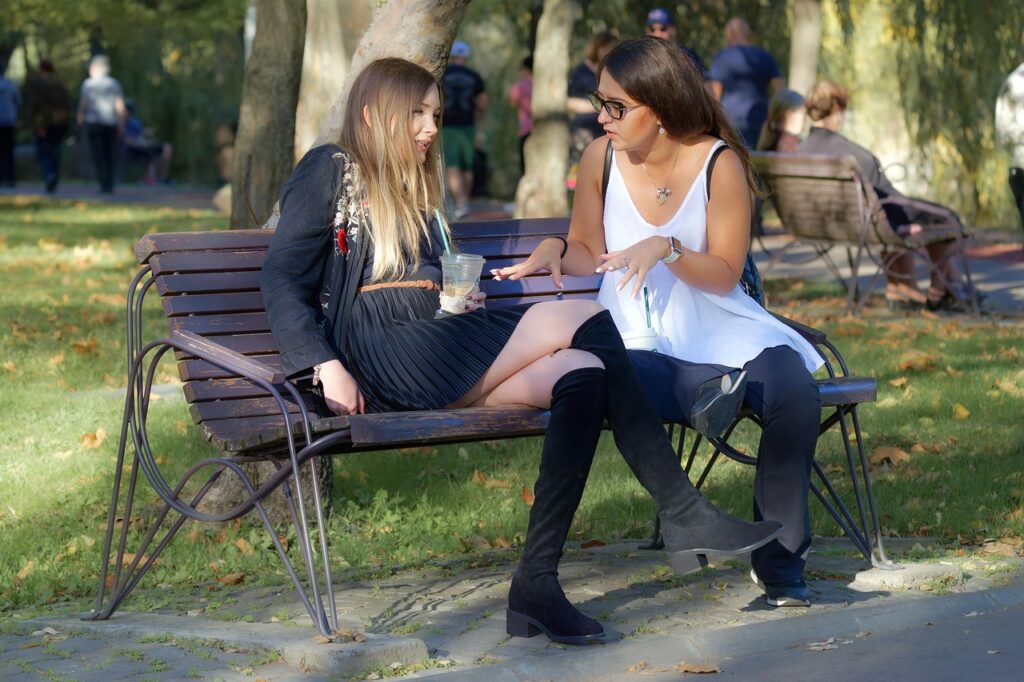We may earn money or products from the companies mentioned in this post. This means if you click on the link and purchase the item, I will receive a small commission at no extra cost to you ... you're just helping re-supply our family's travel fund.

When you travel, you quickly learn that kindness and respect are not spoken with one universal accent. The gestures, phrases, and social rhythms that feel polite and natural at home can mean something entirely different a world away. What we often perceive as rudeness is simply a different cultural language being spoken, one that values directness over pleasantries, or silence over small talk. Learning to translate these customs is the key to unlocking a deeper, more authentic connection with the places you explore and the people you meet.
1. The “Slow” Service in Italy

That waiter in Rome who seems to have vanished after dropping off your pasta isn’t ignoring you; they are giving you a cultural gift. In Italy, a meal is a cherished, unhurried event, and to rush you out the door would be the height of rudeness. The staff will not present the bill, or il conto, until you explicitly ask for it, because doing so would imply that they want you to leave. Embrace the leisurely pace, savor your food, and understand that you are in charge of the meal’s timing.
2. The Lack of a Smile in Russia

On the Moscow metro or a St. Petersburg street, you might notice that strangers don’t typically exchange smiles. This is not a sign of unhappiness or unfriendliness. In Russian culture, a smile is not a casual greeting but a genuine expression of personal affection, reserved for friends and family. Offering an unsolicited smile to a stranger can be seen as insincere or even suspicious. A neutral, direct expression is the cultural norm for politeness in public spaces.
3. The Directness of the Dutch

In the Netherlands, conversations can feel refreshingly, and sometimes startlingly, direct. The Dutch value honesty and efficiency, so they tend to get straight to the point without the buffer of pleasantries common in American discourse. This “bluntness” is not meant to be rude; on the contrary, it is considered a sign of respect for your time and intelligence. They are not being harsh or aggressive, they are simply being clear, which is a prized cultural trait.
4. Slurping Your Noodles in Japan

In a Japanese ramen shop, the sound of loud slurping is not a sign of bad manners—it is a sign of pure enjoyment and a compliment to the chef. It is believed that slurping aerates the noodles and broth, enhancing their flavor while also helping to cool the piping hot food as you eat. It is a signal to everyone that you are thoroughly savoring the meal. So go ahead and slurp with confidence; your silence might be interpreted as a lack of enthusiasm for the dish.
5. The Fluid Concept of Time in Latin America

If your friend in Brazil or Argentina says they will meet you at 8 p.m., do not be surprised if they arrive at 8:30 or even later. This is not a sign of disrespect for your time but a different cultural hierarchy of values. In many Latin American cultures, punctuality is less rigid, and the focus is on the quality of the human interaction, not a strict adherence to the clock. The relationship is always prioritized over the schedule, a beautiful lesson in being present.
6. Not Tipping in Australia

When you leave a generous tip on the bar in a Sydney pub, the bartender might seem confused or even try to return it to you. This is not false modesty. In Australia, service industry staff are paid a robust minimum wage, and tipping is not a standard or expected part of the culture. The price on the menu is the full price you are expected to pay, with good service already factored in. Your extra cash, while well-intentioned, can create an awkward moment.
7. Pushing in Crowds in China

Navigating a crowded subway station in Beijing or Shanghai can be an intense physical experience for a Westerner. The concept of personal space is very different in a country with such high population density, and the orderly queues common in the U.S. are not always the norm. A bit of pushing or jostling is not meant as a personal affront or an act of aggression; it is simply a practical and functional adaptation for navigating a crowded public space.
8. Asking “Personal” Questions in Turkey

A shopkeeper in Istanbul’s Grand Bazaar might quickly ask you about your age, your marital status, or how many children you have. In American culture, these questions from a stranger could feel intrusive or overly familiar. In Turkey and many other cultures, however, it is a common and friendly way to build rapport and show genuine interest in you as a person, not just as a customer. It is a form of social connection, not an invasion of your privacy.
9. The French “Non” in a Parisian Shop

You might ask a Parisian shopkeeper for a product, only to receive a curt, seemingly dismissive “Non” and a shrug. This is not personal. In French service culture, there is less emphasis on the “customer is always right” mantra of American commerce. The response is a simple, efficient statement of fact: they do not have what you are looking for. It is not meant to be unhelpful, but rather to save you both time by not engaging in false pleasantries.
10. Eating With Your Hands in India

At a dinner table in Delhi, you will likely see your hosts eating curries, bread, and rice skillfully with their right hand. Using your hands to eat is a deeply ingrained cultural and sensory tradition in India. It is believed that eating with your hands connects you more deeply to your food. It is not unhygienic or “primitive.” Just remember the most important rule: only use your right hand, as the left hand is traditionally reserved for personal hygiene.
11. The Silence in a Finnish Sauna

The sauna is a hallowed institution in Finland, but it’s not a place for loud conversation and social chatter. For Finns, the sauna is a space for quiet, meditative relaxation and cleansing, both physical and spiritual. While quiet, respectful conversation is acceptable, the deep silence you might experience is a sign of shared reverence for the space. It’s a place to relax your body and your voice, and to simply be, without the need to fill the air with noise.
12. The Two-Handed Exchange in South Korea

When giving or receiving an item in South Korea—whether it’s a gift, a credit card, or a business card—it is a sign of deep respect to use both hands. Using only one hand, especially when interacting with someone who is older or holds a higher status, can be seen as overly casual and slightly dismissive. This simple physical gesture of using both hands shows humility and acknowledges the importance of the other person and the interaction itself.
13. The Ritual of Hospitality in the Middle East

If you are offered a cup of tea or a snack in a home or shop in Jordan or Egypt, the polite custom is often to refuse once or twice before accepting. Your host, in turn, will insist. This is not a game; it is a beautiful cultural dance of humility and generosity. You decline to avoid seeming greedy, and your host insists to show that their hospitality is genuine. Accepting on the third offer is a graceful way to complete this time-honored ritual.
14. Not Saying “Bless You” After a Sneeze

If you sneeze in many parts of Europe or Asia, you might be met with complete silence. The custom of saying “bless you” is rooted in Western, specifically Christian, superstitions about the soul leaving the body during a sneeze. In many other cultures, a sneeze is just a sneeze—a simple biological function that requires no comment or intervention from others. The silence is not a sign of indifference; it’s just the cultural norm of letting it pass without remark.
15. The Thumbs-Up Gesture in West Africa and the Middle East

Be very careful with this one. In American culture, the thumbs-up is a universal sign of “A-OK” or “good job.” But in many parts of the Middle East, West Africa, and even parts of South America, it is a deeply offensive, obscene gesture, equivalent to raising your middle finger. Using it can turn a friendly, well-intentioned interaction into a hostile one in an instant. A simple smile and a nod is always a safer and more universal bet.